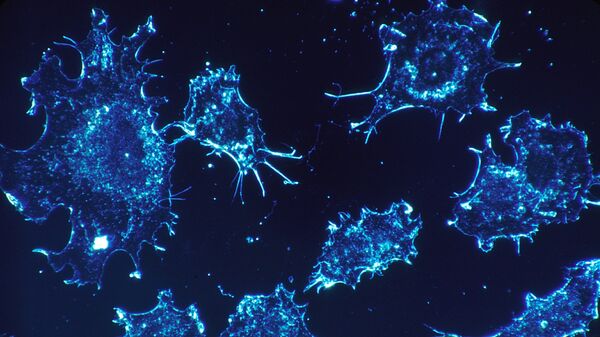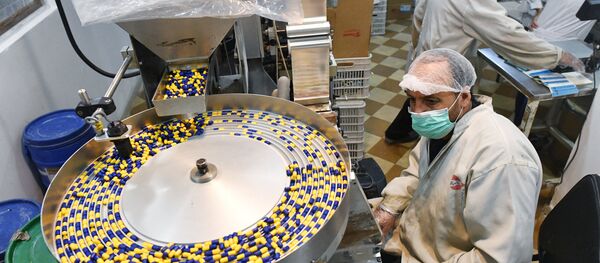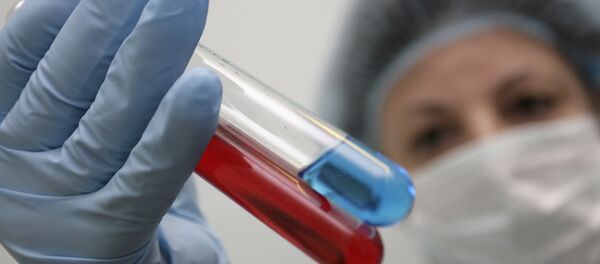The test, called CancerSEEK, can even help doctors discern the location of cancer in a patient's body. This is the first non-invasive blood test that can screen for multiple cancers simultaneously, checking for cancer of the ovary, liver, stomach, pancreas, esophagus, colon, lung and breast.
According to the researchers, these cancers cause more than 60 percent of cancer deaths in the US. Five of the cancers — ovarian, liver, stomach, pancreatic and esophageal cancers — do not have screening tests available yet.
"The goal is to look for as many cancer types as possible in one test and to identify cancer as early as possible," said Nickolas Papadopoulos, lead researcher and professor of oncology and pathology at Johns Hopkins University in Maryland.
"We know from the data that when you find cancer early, it is easier to kill it by surgery or chemotherapy," Papadopoulos added.
CancerSEEK, which is the culmination of 30 years of research, uses two signs to determine whether a person might have cancer. It searches for 16 giveaway genetic mutations in pieces of tumor-associated DNA that are released by cancerous cells and can accumulate in the bloodstream. However, these free-floating bits of DNA are deposited in the blood in only tiny amounts, making them tricky to detect and to work with.
For instance, a single blood sample could have thousands of DNA bits from normal cells and just two or three pieces from cancerous cells.
"We are dealing with a needle in a haystack," Papadopoulos said.
To overcome this hurdle, researchers used innovative digital technologies to sequence each piece of DNA.
"If you take the hay in the haystack and go through it one by one, eventually you will find the needle," Papadopoulos said.
CancerSEEK also combs for eight proteins that are typically found in higher amounts in blood samples of cancer patients.
By using these two signals together, CancerSEEK successfully detected cancer in 70 percent of blood samples drawn from 1,005 people who had already been diagnosed with one of the eight types of cancers named.
The authors also noticed that the blood test was more successful at spotting some cancer types than others. While it could detect ovarian cancer 98 percent of the time, it successfully diagnosed breast cancer only 33 percent of the time.
In addition, CancerSEEK appeared to be more effective at detecting cancer in later stages rather than earlier stages. It discerned the disease 78 percent of the time in patients with stage III cancer, 73 percent of the time in people who had been diagnosed with stage II cancer and only 43 percent of the time in people with stage I cancer.
"I know a lot of people will say this sensitivity is not good enough, but for the five tumor types that currently have no test, going from zero chances of detection to what we did is a very good beginning," Papadopoulos noted.
When the researchers ran the test on 812 healthy blood samples, there were only seven false positive results.
"Very high specificity was essential because false positive results can subject patients to unnecessary invasive follow-up tests and procedures to confirm the presence of cancer," said Kenneth Kinzler, a professor of oncology at Johns Hopkins who also contributed to the study.
The researchers also employed machine learning to evaluate how various combinations of mutations and proteins can help pinpoint cancer's location. They uncovered that they could track down the tumor location to a few anatomic sites in 83 percent of people.
CancerSEEK will not be made commercial for at least another year, if not longer.
"We are still evaluating the test, and it hasn't been commercialized yet. I don't want to guess when it will be available, but I hope it is soon," Papadopoulos said.
The hope is that the test could eventually cost less than $500 and be conducted by a primary care physician, the lead author noted.
"The idea is: You give blood, and you get results," Papadopoulos said.







